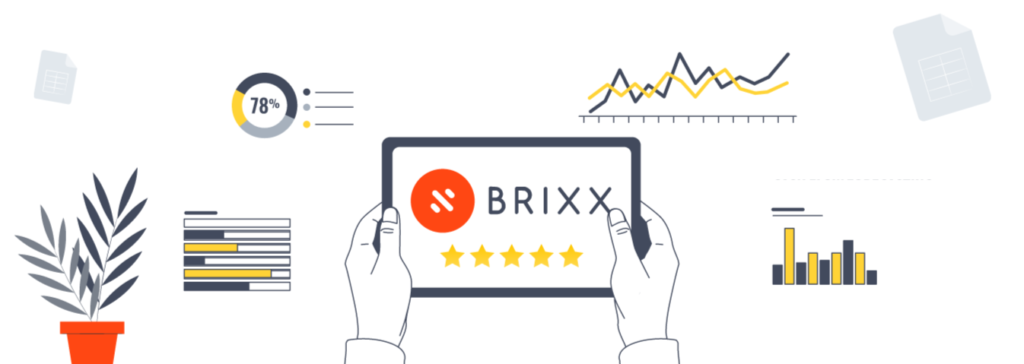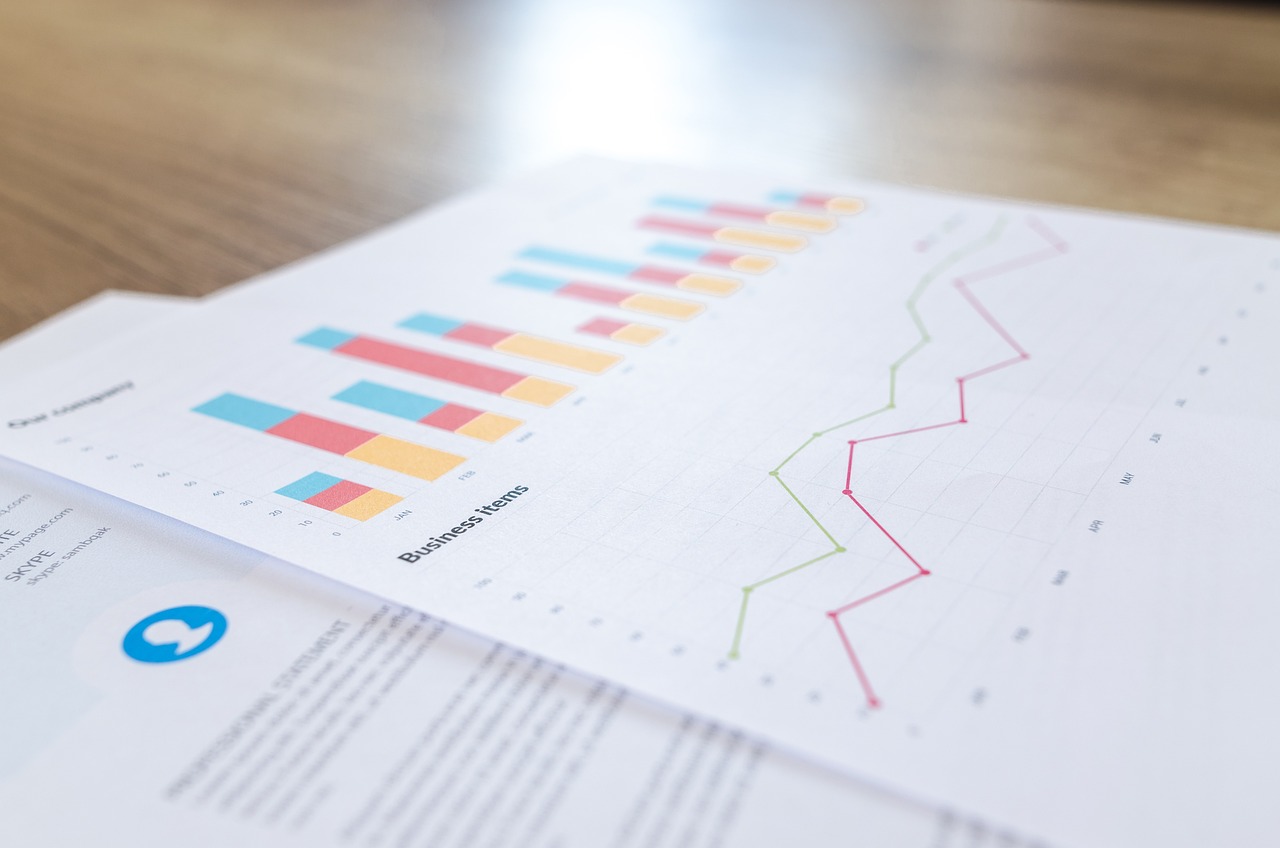

Starting a business is an exhilarating adventure, but it also involves critical financial planning. A fundamental aspect of this planning is understanding and calculating your startup costs. Accurately gauging these costs is crucial for securing funding, budgeting effectively, and setting your business up for success. This guide aims to demystify the process of calculating startup costs, ensuring you have a clear financial roadmap as you embark on your entrepreneurial journey.
Get started with our forecasting software so that you can plan your business' futureStart and plan your business with Brixx
Why do I need to know my startup costs?
Knowing your startup costs is essential for several key reasons:
- Securing funding: When seeking funding from investors or applying for loans, a detailed breakdown of your startup costs is often a prerequisite. This information demonstrates your understanding of what the business venture requires and your readiness to manage financial resources effectively.
- Effective budgeting: A clear understanding of your startup costs allows for more accurate budgeting. It helps prevent unexpected cash flow problems, ensuring you have enough capital to cover both initial and ongoing expenses.
- Planning for profitability: With a comprehensive grasp of your initial outlay, you can set realistic revenue targets. Knowing your startup costs aids in strategizing for profitability, helping you decide on pricing, marketing expenditure, and other key business decisions.
Understanding your startup costs is not just about accounting for every dollar spent but about laying the groundwork for a sustainable and profitable business model.
Step-by-step guide to calculating your startup costs
Calculating your startup costs involves several key steps. Each step is crucial in developing a comprehensive understanding of the financial requirements of your new business. This section provides a detailed guide to help you accurately estimate your startup costs.
1. Identify your expenses
Identifying your startup expenses is crucial to developing an accurate budget. These expenses fall into two main categories:
- one-time expenses
- ongoing expenses
One-time expenses:
- Business plan research and development: This includes costs for researching your industry, target market, and the best tax structure for your business, potentially hiring market research firms or consultants.
- Borrowing costs and fundraising expenses: Any initial fees related to securing loans or other forms of financing, like application or origination fees.
- Licenses and permits: Costs for obtaining necessary business licenses or permits, which can vary depending on your industry.
- Equipment and initial supplies: Outright purchases or leases for essential business equipment and initial supply stock.
- Business registration fees: Costs associated with registering your business with the state, including filing articles of incorporation or organization.
- Consultants: Fees for professional advice or strategy development, such as management analysts or recruiting experts.
Ongoing expenses:
- Marketing and public relations: Continuous advertising, promotion, and brand visibility strategies.
- Payroll and benefits: Expenses related to employee wages, benefits, and potentially contractor fees.
- Insurance: This includes workers’ compensation, business liability insurance, and other relevant policies.
- Utilities: Regular costs for water, electricity, internet, and phone services, applicable to both physical and home office spaces.
- Technology costs: Ongoing expenses for website maintenance, business software, and information systems. This may also include outsourcing IT functions or using software-as-a-service (SaaS) solutions.
- Inventory management: For businesses in retail, restaurant, or manufacturing, the cost of purchasing and managing inventory is a continuous expense.
These examples of one-time and ongoing expenses provide a comprehensive overview of what to consider when calculating your startup costs. Accurately identifying and categorizing these expenses is the foundation for a realistic and effective budget.
2. Estimate how much your expenses will cost
After identifying your expenses, the next step is to estimate how much each will cost. This can be challenging, especially for those new to the business world, but it’s vital for creating a realistic budget. Here are some strategies to help you:
- Get quotes: Reach out to vendors and service providers for quotations. This will give you a more accurate idea of what certain expenses will cost.
- Research industry standards: Look at case studies, industry reports, or talk to peers in the industry to understand the standard costs involved in your type of business.
- Consult with experts: Financial advisors, accountants, and other entrepreneurs can offer valuable insights into cost estimation.
3. Do the math for a full financial picture
With your expenses identified and estimated, the next step is to do the math. Add up all your one-time and recurring costs to get a total figure for your startup expenses. This step gives you a full financial picture of what it will take to get your business off the ground. A detailed spreadsheet can be an invaluable tool at this stage, enabling you to adjust estimates easily and see their overall impact on your startup budget.
Recommended reading: Financial Forecasting Template for Startups
4. Incorporate a financial buffer
It’s prudent to include a financial buffer or contingency fund in your budget. This buffer, ideally around 10-20% of your total estimated costs, accounts for unexpected expenses or miscalculations. Unforeseen costs are common in new business ventures, and having a buffer can help you navigate these without jeopardizing your business’s financial stability.
5. Apply your cost analysis effectively
Finally, use your cost analysis to:
- Set financial goals: Your startup costs will inform your initial financial targets. They are crucial for setting up pricing strategies and forecasting sales.
- Prepare for fundraising: A detailed and realistic cost analysis can make a strong case when presenting to potential investors or lenders.
- Monitor cash flow: An understanding of your startup costs is essential for managing cash flow. It ensures you have enough capital to cover ongoing expenses and supports strategic decisions for growth and expansion.
Applying your cost analysis effectively is about turning these figures into actionable business insights that guide your operational and strategic decisions.
Examples of estimating startup costs
This part of the guide provides practical examples of estimating startup costs for two common types of businesses: restaurants and coffee shops. These examples will help you understand the specific expenses associated with each type of venture.
Restaurant startup costs
Restaurant startup costs include a variety of expenses unique to the food service industry. These may cover:
- Kitchen equipment: Ranges, ovens, fryers, and refrigerators.
- Furniture and décor: Tables, chairs, lighting, and interior design.
- Initial food inventory: Stocking up on ingredients and supplies.
- Licenses and permits: Health department permits, liquor licenses, etc.
- Staffing: Chefs, waitstaff, and support personnel.
- Marketing: Initial promotional activities to attract customers.
Coffee shop startup costs
Startup costs for a coffee shop are somewhat different, focusing more on the beverage side of the business:
- Coffee equipment: Espresso machines, grinders, and brewers.
- Seating and ambiance: Comfortable seating, Wi-Fi setup, and decor.
- Coffee and pastry inventory: High-quality beans, milk, syrups, and bakery items.
- Barista training: Ensuring staff is skilled in coffee preparation.
- Marketing: Strategies to create a buzz before and after opening.
These examples are just starting points. Depending on your location, concept, and size, your startup costs can vary significantly.
To learn more about how a financial software can assist you in your restaurant venture, including components like sales forecasting, cost management, and performance tracking, visit
Financial Forecasting for Restaurants
Financial Forecasting for Coffee Shops
Test your idea with our free startup financial planning tool
Brixx offers an innovative and user-friendly financial planning tool for small businesses. With its ability to build long-term monthly cashflow projections and detailed financial models, Brixx simplifies the process of testing the viability of your business ideas. The software requires no financial background, making it accessible to all. Start shaping your business’s future today with Brixx’s startup financial planning tool.
Test your idea, build financial models with ease, and gain a complete financial picture in just a few clicks!
















